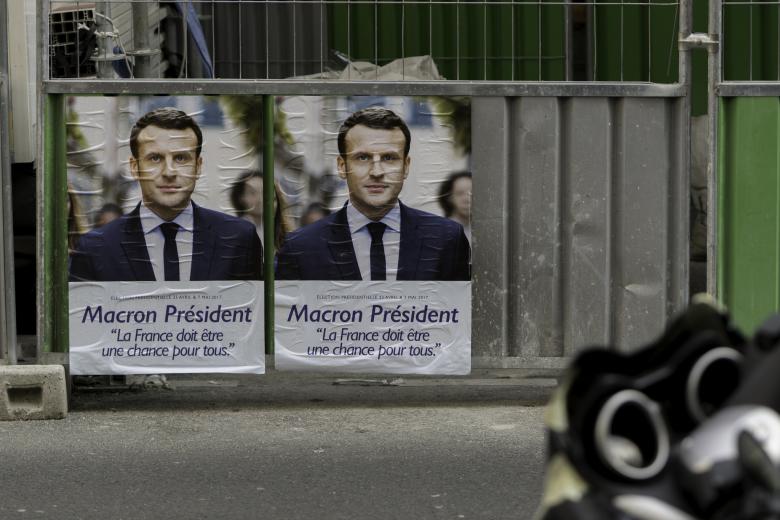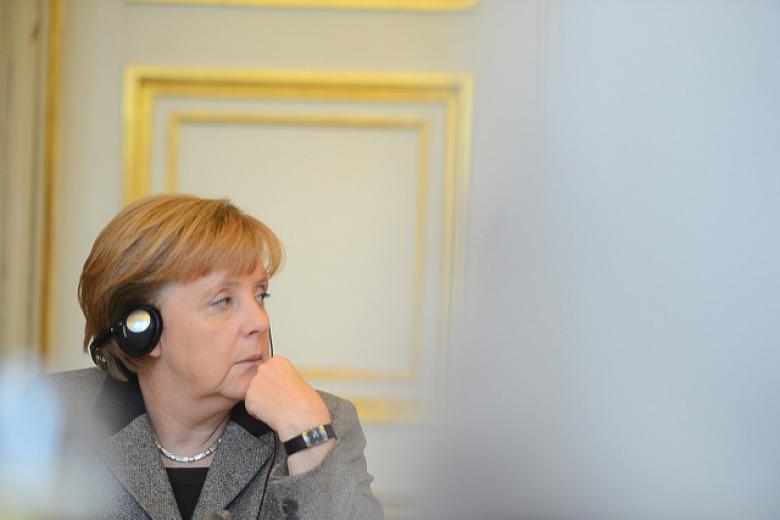Verkiezingsanalyse: veel te doen? (deel 2)
Wat gaat er komen voor Frankrijk na de feestelijkheden? Gekozen president Macron heeft er zijn handen vol aan. De uitdagingen zijn legio en er is veel te doen. (Alleen beschikbaar in het Engels)
This is the second part of a diptych on the French presidential elections, if you did not read the first part (Election analysis: much to do? part 1), you might prefer to do that first.
No Honeymoon
According to an exit poll conducted on Election Day, 43% of voters stated that their reason for voting for Mr Macron was to prevent Ms Le Pen from becoming President, with a stunning 84% conceding that they were not persuaded at all by his policies. In another remarkable figure, around 49% of participants in an opinion poll stated that they did not want Mr Macron and his En Marche (On the Move) movement to win a majority of the National Assembly. The central challenge is the fact that En Marche has only existed for the past year or so, and does not possess the same organizational strength as established parties like the Socialist Party, the centre-right Republicans and the Front National. The future President is also faced with the dilemma that due to the exceptional nature of his second-round candidacy – being the only one standing between Marine Le Pen and the Elysée Palace – a wide range of political leaders rallied around him. They will expect to be accommodated in some way. At the same time, Macron also needs to square this with his promises to ensure that half of all En Marche candidates for the National Assembly will be women, and that most of them will be political newcomers.
As if that were not enough, the President is unlikely to get a honeymoon period from the voters or his political competitors: the established parties of the centre-left and the centre-right, already leaderless and in disarray due to the failures of their respective presidential candidates, will be looking for a rematch in the National Assembly election. The Front National is also looking to make major waves: in her first remarks after losing the election, Ms Le Pen announced her intent to form a new political party with a new name – in order to rally the voters who voted for her towards the nationalist right.
Due to France’s two-round electoral system (albeit slightly different from that used in the presidential elections, in that up to three candidates can end up in the final round in each parliamentary constituency), chances are that the Front’s support will be nowhere enough to form a majority or even be among the top 2 finishers in the Assembly. Instead, it is likely that they will accelerate the decline of the centre-left Socialist Party – many of whose voters have deserted the party for En Marche or Jean-Luc Mélenchon’s left-of-centre Unsubmissive France movement. Thus, it is suffering from the same phenomenon as Germany’s Social Democrats, the Dutch PvdA and the United Kingdom’s Labour Party – questions being raised about the rationale for social democracy in the 21st century. The centre-right Republicans (LR) also have questions to answer about their strategy: arguably, Marine Le Pen was also able to siphon votes from the LR candidate François Fillon – outflanking him on security and immigration from the right, and social security from the left. The two parties have overlapping electorates, and the question for the LR will be whether it will forge an alliance (formal or tacit) with the National Front, especially in constituencies where a right-wing candidate could beat En Marche or a left-wing candidate.
Challenges Remain
Much will depend on the outcome of the National Assembly election. In case he wins a majority, the coherence of Mr Macron’s governing agenda will be assured. However, if he has to enter into a period of cohabitation with another party (as of the latest opinion polls, most likely to be the Republicans), then his radius of action will be severely hampered. However, the disintegration of the Socialist Party, the rise of the Front National and En Marche and the stagnation of the traditional centre-right could also result in a hung parliament – in which case France, the second-largest Eurozone economy, would suddenly enter into a period of unprecedented political instability. The best strategy for governance in such a scenario would be the appointment of an independent caretaker Prime Minister and the search for changing majorities on a case-by-case basis. But the recipe for stability this certainly is not.
Until the National Assembly elections, the new President has to name a caretaker prime minister – whose identity will already provide clues about how President Macron intends to govern once he has been inauguarated this coming Sunday. France’s problems remain: many voters feel insecure, in terms of their economic mobility and their personal security. Unemployment, terrorism and the right approach to defining France’s national identity (including in its relations with the rest of Europe) will mark the President’s immediate challenges in office. Marine Le Pen remains a formidable opponent to the new President – one statistic should give pause to anyone believing that the risk of the nationalist right winning the presidency has been eviscerated by Mr Macron’s decisive victory: Ms Le Pen won 56% of all working-class voters, 69% of voters “just getting by”, 45% in the lowest income percentile, 47% of unemployed voters and having secured the support of at least one-third of all voters in every single segment of the electorate. Macron, on the other hand, easily won higher-income, higher-educated voters. A tale of two Frances – and a story we have already been able to observe during Brexit and the 2016 presidential election in the United States:
President-elect Macron has his work cut out. His challenges are many. There is much to do. Many of the economic reforms that he championed (cutting 120,000 civil service jobs, reducing the budget deficit, greater labour market flexibility) during the campaign are (if history is any guide) likely to face determined resistance from trade unions and other special interests. Given the widespread disillusionment among the French with their political leadership and the state of the economy – and the nationalist challenge that has been put into abeyance, not slayed indefinitely – one can only hope that he will be able to provide the effective leadership needed to restore balance to the French political debate.
Muddling through will no longer do.
Read Election analysis: much to do? (part 1)
This blog is published on Law Blogs Maastricht and LEGALLY OPINIONATED
Image by Flickr - Lorie Shaull
-
Verkiezingsanalyse: veel te doen? (part 1)
De overwinning bij de Franse presidentsverkiezingen van Emmanuel Macron kan men niet worden afgeleid van het feit dat er vele uitdagingen liggen. Op het gebied van bestuur verschijnt in juni president Macron’s grootste doorslaggevende uitdaging. (Alleen beschikbaar in het Engels)

-
Einde van een reis
Terwijl de wereld naar Parijs keek, vond er een andere verkiezing plaats aan de Duitse kust. De Duitse sociaal-democraten verliezen controle over een cruciale staat, op het meest ongelegen moment. (Engelstalige blog)

-
Sluipaanval (deel 2)
Theresa May’s verassingsoproep voor de algemene verkiezingen zal waarschijnlijk niks veranderen... (Dit tweeluik is alleen beschikbaar in het Engels)
